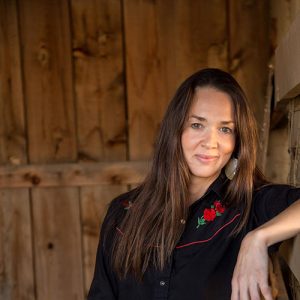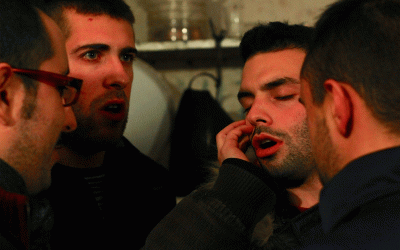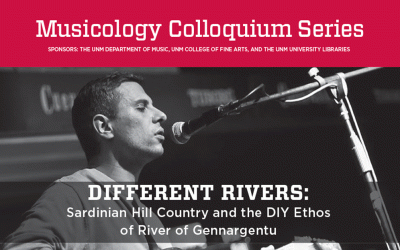Dr. Kristina Jacobsen, Assistant Professor of Ethnomusicology in the UNM Department of Music, is awarded the 2018 Woody Guthrie Book Award for the most outstanding book in popular music by the International Association for the Study of Popular Music (IASPM-U.S.).
“Jacobsen’s study of the ways in which Diné, or Navajo, country music musicians and fans articulate their sense of belonging and identity through country music, a genre deemed incongruous with and even antagonistic to Navajo sensibilities, is a remarkable example of popular music scholarship. Jacobsen’s work is particularly timely as the racialization of indigeneity continues to erase indigenous presence from popular music and cultural production writ large. Jacobsen’s reflexive positioning as a non-Diné (white) scholar as well as a performing country musician in bands with Navajo musicians, Jacobsen provides a strong model for ethical and sensitive ethnographic work.”
2019 Prize Committee (Kevin Fellezs, Alexa Woloshyn, and Kate Galloway), Woody Guthrie Book Award.
Dr. Ana R. Alonso-Minutti Releases Book of Co-Edited Collection of Essays
A Book Presentation & Signing event for Dr. Alonso-Minutti co-edited collection of essays, Experimentalisms in Practice: Music Perspectives in Latin America, published by Oxford University Press earlier this year, at the UNM Bookstore.
Cuncordu Sas Bator Colonnas perform at Outpost
Sas Bator Colonnas is a multipart singing group from the Scano di Montiferro, a mountainous region in central Sardinia, Italy. Antioco Milia, Antonio Carboni, Stefano Desogos and Francesco Fodde started singing together in 2002, carrying on the vernacularmultipart singing practice, one of the most representative cultural forms of their village and their island, which is performed by four male singers and called cuncordu.
Different Rivers: Sardinian Hill Country and the DIY Ethos of River of Gennargentu
In the summer of 2014, the Bluesman “River of Gennargentu” released, on his SoundCloud page, three songs of hill country blues, sung in English and played with a technique like those of historical Delta blues artists, recorded in low-quality sound. Within a few months, the web page collected dozens of comments from users who were amazed by this new “discovery” and demanded the real artist’s origin, as-yet-not-specified.




